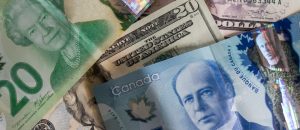Tax cuts have been a popular tool used by governments to stimulate economic growth and attract investment. However, their impact on the forex market is often overlooked. In this article, we will explore how tax cuts affect forex and what traders should consider when trading currencies in a tax-cut environment.
What are tax cuts?
Tax cuts are a reduction in the amount of taxes that individuals or businesses have to pay. These can take many forms, including lower income tax rates, lower corporate tax rates, and tax credits for specific industries or activities. The goal of tax cuts is to stimulate economic activity by putting more money in the hands of consumers and investors.
How do tax cuts affect forex?
There are several ways in which tax cuts can affect forex. Here are some of the most important:
1. Increased economic growth: Tax cuts can stimulate economic growth by increasing consumer spending and business investment. This can lead to higher GDP growth, lower unemployment, and higher stock prices. A stronger economy can also lead to a stronger currency, as investors are more likely to invest in countries with strong economic fundamentals.
2. Inflation: Tax cuts can lead to inflation if they increase the amount of money in circulation. This can lead to higher interest rates, which can make a currency more attractive to investors. However, if inflation gets out of control, it can lead to a weaker currency as investors lose confidence in the country’s economic stability.
3. Budget deficits: Tax cuts can also lead to budget deficits if they are not offset by spending cuts or other revenue-raising measures. This can lead to a weaker currency as investors worry about the country’s ability to pay its debts.
4. Trade deficits: Tax cuts can also lead to trade deficits if they make imports cheaper and exports more expensive. This can lead to a weaker currency, as investors worry about the country’s ability to pay for its imports.
5. Capital inflows: Tax cuts can attract capital inflows if they make a country more attractive to foreign investors. This can lead to a stronger currency, as demand for the currency increases.
What should forex traders consider when trading in a tax-cut environment?
Forex traders should consider several factors when trading in a tax-cut environment. Here are some of the most important:
1. Economic indicators: Traders should pay close attention to economic indicators such as GDP growth, inflation, and unemployment. These can give insights into the health of the economy and the likely impact of tax cuts.
2. Interest rates: Traders should also pay close attention to interest rates, as they can be impacted by tax cuts. Higher interest rates can make a currency more attractive to investors, while lower interest rates can make it less attractive.
3. Budget deficits: Traders should also watch for signs of budget deficits, as these can impact a currency’s strength. If tax cuts lead to higher deficits, investors may start to worry about the country’s ability to pay its debts.
4. Trade deficits: Traders should also watch for signs of trade deficits, as these can impact a currency’s strength. If tax cuts lead to higher trade deficits, investors may start to worry about the country’s ability to pay for its imports.
5. Capital inflows: Traders should also watch for signs of capital inflows, as these can impact a currency’s strength. If tax cuts attract foreign investment, demand for the currency may increase.
Conclusion
Tax cuts can have a significant impact on the forex market, affecting everything from economic growth to inflation to trade deficits. Forex traders should pay close attention to economic indicators, interest rates, budget deficits, trade deficits, and capital inflows when trading in a tax-cut environment. By keeping these factors in mind, traders can make informed decisions and take advantage of opportunities in the market.





